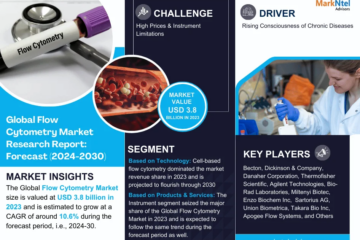
In today’s fast-paced healthcare industry, efficiency and accuracy are crucial. The increasing demand for seamless medical documentation has led to the emergence of cutting-edge technologies like AI-powered medical transcription platforms. These innovative solutions are revolutionizing how healthcare providers manage patient records, streamlining workflows, and improving patient outcomes.
Let’s explore the world of medical transcription AI, uncovering its benefits, challenges, and the bright future it promises for the healthcare sector.
What is Medical Transcription AI?
Medical transcription involves converting spoken medical reports into written text. Traditionally, this task required trained transcriptionists to manually transcribe dictations by doctors, nurses, or other healthcare professionals. While effective, it was time-intensive and prone to errors.
Enter AI medical transcription—a game-changer that employs artificial intelligence and natural language processing (NLP) to transcribe audio into accurate, structured, and formatted text. AI transcription platforms can process complex medical jargon, identify context, and produce highly accurate reports in a fraction of the time.
How AI is Revolutionizing Medical Transcription
The integration of AI in medical transcription platforms has transformed how healthcare documentation is managed. Here are some key ways AI is making an impact:
- Speed and Efficiency
Traditional transcription could take hours or even days to complete. With AI medical transcription, reports are generated in real-time or within minutes. This allows healthcare providers to access critical information faster, enabling timely decision-making and improved patient care. - Enhanced Accuracy
AI algorithms are trained on vast datasets of medical terminology, ensuring exceptional accuracy. By reducing errors caused by manual transcription, these platforms help maintain the integrity of patient records, minimizing risks associated with incorrect documentation. - Cost Savings
Hiring and training human transcriptionists can be expensive. AI platforms offer a cost-effective alternative by automating the transcription process while reducing overhead costs. - Data Security and Compliance
Modern medical transcription platforms are designed to meet strict security and compliance standards, such as HIPAA (Health Insurance Portability and Accountability Act) in the United States. These safeguards ensure patient confidentiality and secure handling of sensitive information. - Integration with EMR/EHR Systems
Many AI transcription tools integrate seamlessly with electronic medical record (EMR) or electronic health record (EHR) systems. This eliminates manual data entry, reduces administrative burden, and enables healthcare professionals to focus on patient care.
The Top Features of AI Medical Transcription Platforms
The best medical transcription platforms leverage cutting-edge technologies to deliver unparalleled results. Here are some features to look for:
- Multi-Language Support: Ideal for diverse healthcare environments.
- Customizable Templates: Tailored transcription formats for different medical specialties.
- Real-Time Transcription: Instant generation of reports during consultations or procedures.
- Voice Recognition: High accuracy in understanding various accents and speech patterns.
- Analytics and Insights: Advanced tools to analyze trends and improve workflows.
Challenges Facing Medical Transcription AI
While AI-powered medical transcription offers numerous benefits, it is not without challenges:
- Accuracy in Complex Cases
Although AI systems are highly advanced, they can occasionally struggle with uncommon medical terms, heavy accents, or background noise during recordings. - Implementation Costs
The initial investment in AI transcription platforms may be a barrier for smaller practices or institutions with limited budgets. - Ongoing Training and Updates
As medical terminology evolves, AI systems require regular updates and training to maintain their accuracy and relevance. - Ethical Concerns
Ensuring the ethical use of AI in handling sensitive medical data is essential. Transparency and accountability must be prioritized to build trust in these systems.
The Future of AI in Medical Transcription
The future of medical transcription AI is bright, driven by ongoing advancements in artificial intelligence and machine learning. Emerging trends include:
- Improved Contextual Understanding: AI systems are becoming better at understanding context, enabling more nuanced and precise transcriptions.
- Wider Adoption in Telemedicine: With telemedicine on the rise, AI transcription tools are playing a critical role in documenting virtual consultations.
- Integration with Wearable Technology: Imagine wearable devices that record and transcribe patient data in real-time, further enhancing efficiency.
As these technologies continue to evolve, they promise to make medical transcription more accessible, accurate, and efficient than ever before.
Conclusion
AI-powered medical transcription platforms are revolutionizing healthcare documentation. By leveraging the capabilities of medical transcription AI, healthcare providers can streamline processes, reduce costs, and improve patient care outcomes.
While challenges remain, the benefits far outweigh the drawbacks, making AI medical transcription an indispensable tool for the future of healthcare. As adoption increases, these platforms will continue to set new standards for efficiency, accuracy, and innovation in the industry.



0 Comments